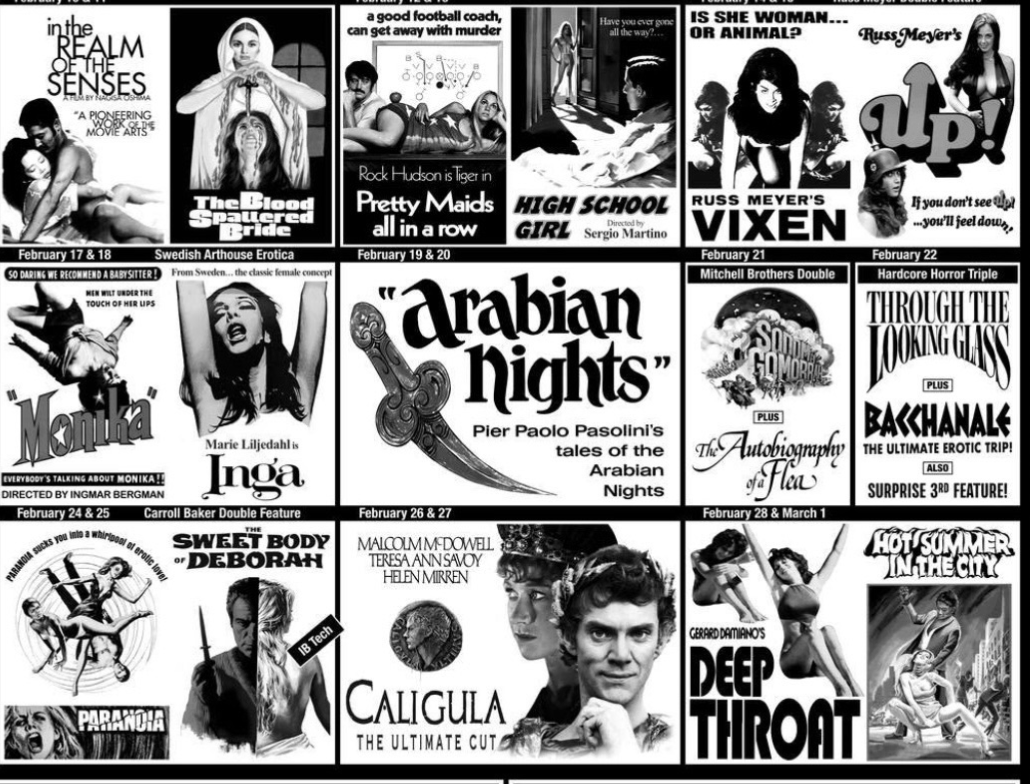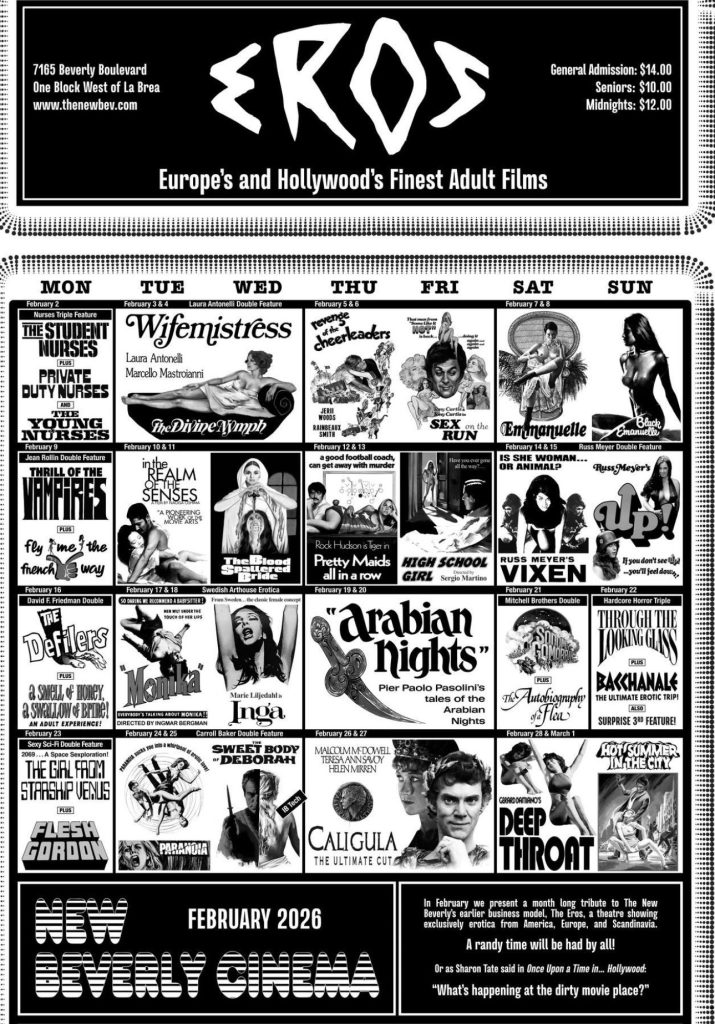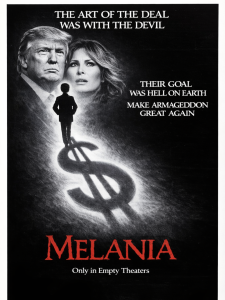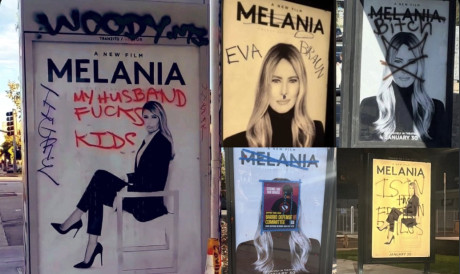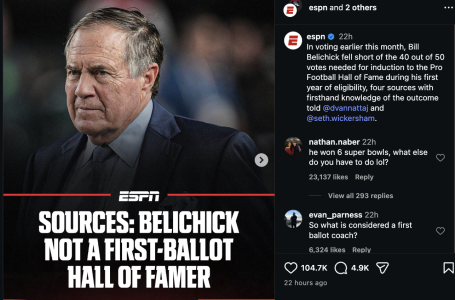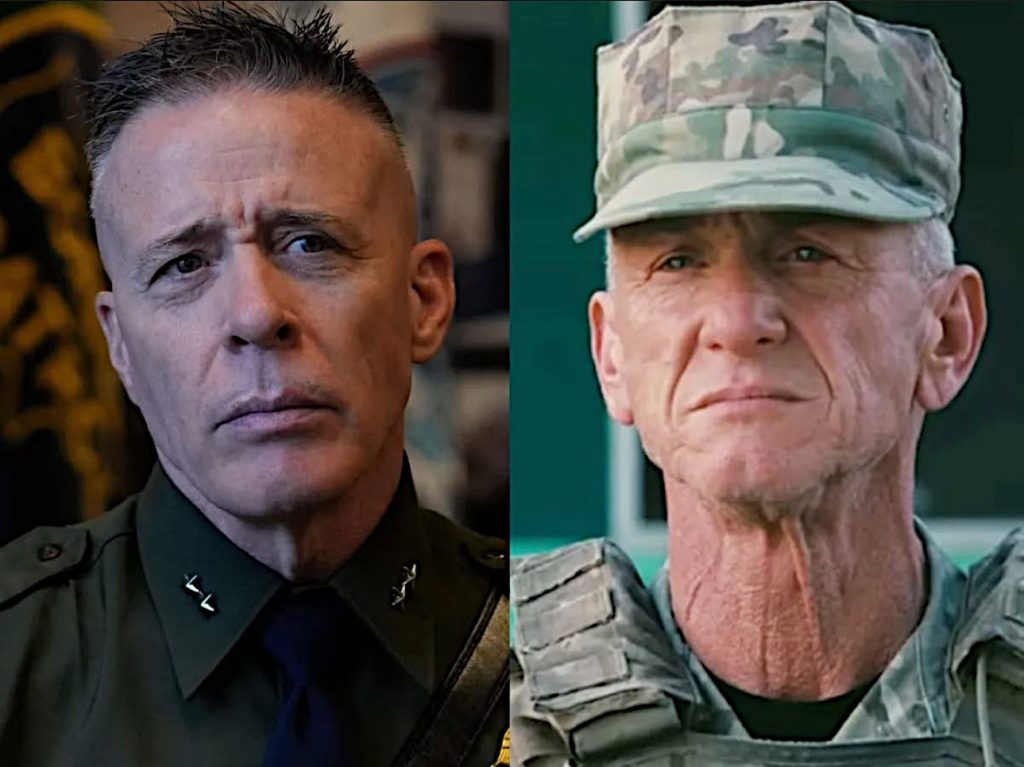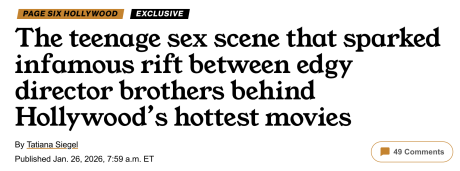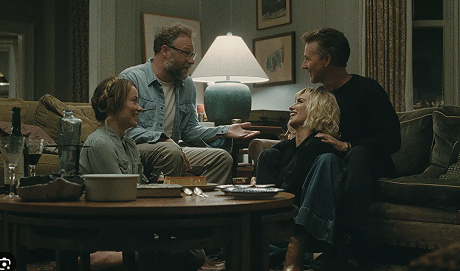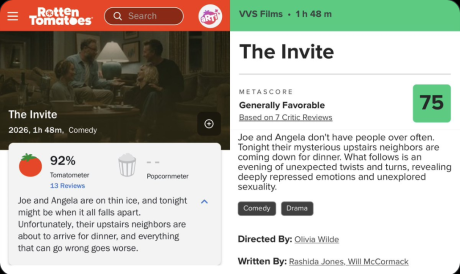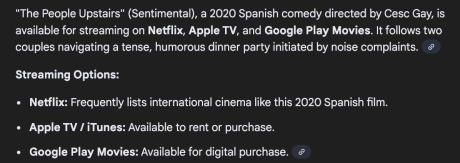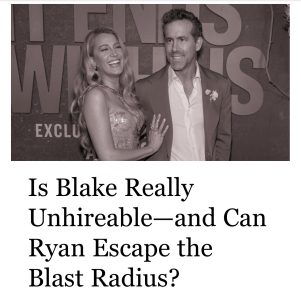Reid Rosefelt on Facebook: “Even though I don’t know her, it pains me to see Blake Lively being attacked with snarky comments online by people who have never had any direct encounter with her. If there is somebody who had an issue with her on a movie, well, okay, let them have their honest say. But a lot of what I read is anonymous people on the internet. Just piling on, being mean. Because they can.”

HE to Rosefelt: Blake Lively is deeply loathed for trying to use a good portion of her (i.e., principally Ryan’s?) considerable wealth and power to try and murder the career of the far less famous, much less powerful Justin Baldoni.
Was her cut of It Ends With Us more commercial than his? Apparently so, but she certainly steamrolled and dragon-ed and butch-bossed her way into basically snatching away Baldoni’s film. They rubbed each other the wrong way? Apparently so, but this happens from time to time. Sensible people usually say “okay, THAT happened” and move on with their lives. But not Blake.
All I know is that Lively has almost certainly earned whatever grief she may be coping with now. She’s been using pumped-up #MeToo hyperbole as her knife or cudgel, and has scarred herself as a troublemaker. And now she’s basically “unemployable”, as a recent trade headline stated.
Who would be so clueless or reckless as to want to work with Blake now? If she had any practical sense she would have let this battle go last year and just moved on. Her point had certainly been made, but she’s STILL hammering away as we speak. (Team Baldoni also.) The Manhattan court date is four months away, and then the appeals will kick in. God help us all.
Posted on 10.8.12: If you want to know how radiantly aware and plugged-in Blake Lively is, read this excerpt from Ben Affleck‘s Details interview with Mark Harris:
“When I was doing The Town, I’d tour the actors around Boston,” Affleck tells Harris. “I was with Blake [Lively], and I saw Matt’s childhood home. And I said, ‘Oh yeah, that’s where Matt grew up.’ And she said, ‘Who?’ And I said, ‘Matt Damon.’ And she said, ‘Oh my God! You know Jason Bourne?!’ She really didn’t know. And I thought, ‘There it is. The first age of people who are adults who missed the whole Matt-and-Ben propaganda campaign!’ Mostly, it just made me feel old.”
Lively, born in August 1987, was ten when Good Will Hunting came out and also when Affleck and Damon won their Best Screenplay Oscar, so she wasn’t paying attention. But she never once heard or read about their collaboration and friendship in the years that followed? And when she got hired to be in The Town (which came out in ’10), she never went online to learn about Affleck’s past? Even if she’s not engaged or curious enough to do online searches, her agent or manager never gave her the rundown? Breathtaking.


